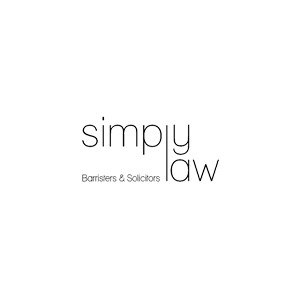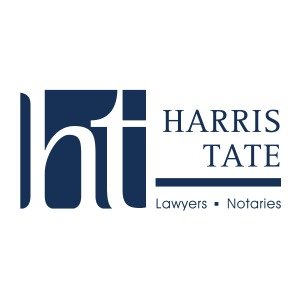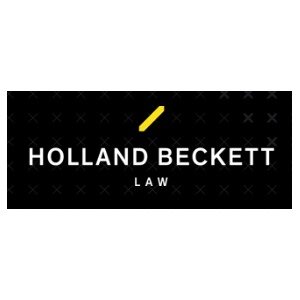Best Banking & Finance Lawyers in Tauranga
Share your needs with us, get contacted by law firms.
Free. Takes 2 min.
List of the best lawyers in Tauranga, New Zealand
About Banking & Finance Law in Tauranga, New Zealand
Banking and finance law governs the operations of banks, financial institutions, consumers, and businesses in Tauranga, New Zealand. It covers multiple aspects such as lending, asset management, investment, banking transactions, and more. The law ensures that these activities are performed appropriately and protects consumers from fraud and mismanagement. It is a dynamic and complex field, heavily influenced by national and international Financial Markets Conduct regulations and guided by both the Reserve Bank and the Financial Markets Authority in New Zealand.
Why You May Need a Lawyer
You might need a legal advisor if you are starting a new business and need assistance with setting up banking transactions, requiring advice on lending and credit agreements, or dealing with debt recovery. Similarly, individual customers of banks might need assistance with home loans, personal loans, and managing banking disputes. Lawyers specialized in banking and finance law can provide proper guidance, negotiation, and representation during legal disputes.
Local Laws Overview
Important laws for banking and finance in Tauranga include The Companies Act 1993 that governs company formation and operation, including obligations during financial difficulties, and The Credit Contracts and Consumer Finance Act 2003 (CCCFA), which stipulates the disclosure requirements for lenders and protects consumer rights. Furthermore, the Financial Markets Conduct Act 2013 governs the conduct of financial service providers and helps to ensure public confidence in capital markets.
Frequently Asked Questions
1. How does the banking dispute resolution process work in Tauranga?
In New Zealand, any disputes about banking services are first addressed internally within the bank. If an agreement cannot be reached, the dispute can be escalated to an independent dispute resolution service, such as the Banking Ombudsman Scheme. The Banking Ombudsman can investigate complaints about banking service providers who are part of the scheme.
2. Can a bank change interest rates without notice?
Typically, fixed-rate agreement terms cannot be changed without consent from both parties. However, variable interest rates can fluctitably change under the right circumstances. Each bank will have a specific policy regarding interest rates which will be outlined in the credit contracts.
3. What protections are there for borrowers?
The CCCFA protects borrowers by requiring lenders to disclose all important information and terms before the consumer enters into a loan or credit agreement. The law also provides avenues for redress if misleading or deceptive conduct occurs.
4. What are my rights if a bank commits a breach of contract?
If a bank breaches the contract, you have the right to take legal action against it. This could involve reparations for losses suffered due to the breach or an order enforcing the bank to uphold its contractual obligations.
5. Can I take legal action against a bank for mis-sold financial products?
Yes, you can take legal action against a bank for mis-selling financial products. Cases of this nature are typically lodged under the Fair Trading Act of 1986, which prohibits misleading and deceptive conduct in trade.
Additional Resources
The Reserve Bank of New Zealand and the Financial Markets Authority are essential resources that provide detailed information and guidelines about the banking and financial market. In addition, the New Zealand Law Society also provides a wealth of legal resources and can connect individuals with expert lawyers in their local area.
Next Steps
If you believe you need legal help with banking and finance-related matters, the best course of action is to consult with a legal expert specialized in this field. It's advisable to prepare any relevant documents and details beforehand to assist in their assessment of your case. It's also important to consider the potential time and cost associated with engaging in a legal process.
Lawzana helps you find the best lawyers and law firms in Tauranga through a curated and pre-screened list of qualified legal professionals. Our platform offers rankings and detailed profiles of attorneys and law firms, allowing you to compare based on practice areas, including Banking & Finance, experience, and client feedback.
Each profile includes a description of the firm's areas of practice, client reviews, team members and partners, year of establishment, spoken languages, office locations, contact information, social media presence, and any published articles or resources. Most firms on our platform speak English and are experienced in both local and international legal matters.
Get a quote from top-rated law firms in Tauranga, New Zealand — quickly, securely, and without unnecessary hassle.
Disclaimer:
The information provided on this page is for general informational purposes only and does not constitute legal advice. While we strive to ensure the accuracy and relevance of the content, legal information may change over time, and interpretations of the law can vary. You should always consult with a qualified legal professional for advice specific to your situation.
We disclaim all liability for actions taken or not taken based on the content of this page. If you believe any information is incorrect or outdated, please contact us, and we will review and update it where appropriate.
Browse banking & finance law firms by service in Tauranga, New Zealand
Tauranga, New Zealand Attorneys in related practice areas.

















